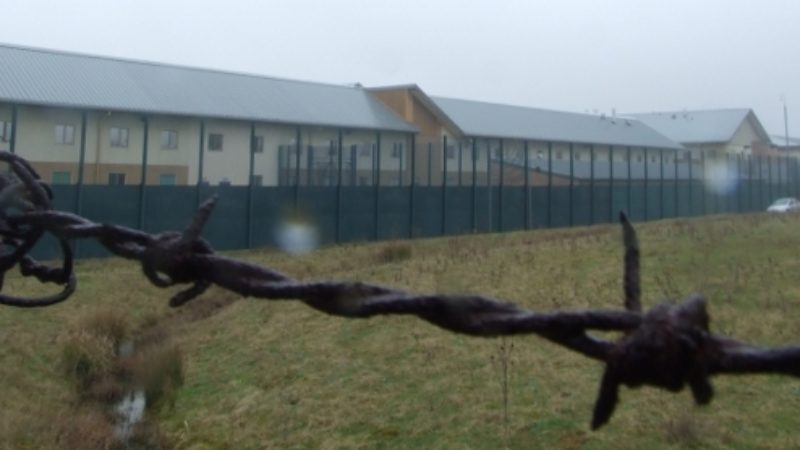
The ‘hostile environment’, Theresa May’s flagship Home Office policy, has manifested itself in nearly every aspect and institution of daily life. From the NHS to local government, every part of life in the UK for migrants has become more tiresome, bureaucratic and costly.
Austerity has disproportionately affected women, Black, Asian, minority ethnic and migrant communities. It is in this context that those same people might also have to worry about the additional legal costs of multiple visa applications, when there is now little to no access to legal aid. Filling out the annual visa application form without legal help seems the obvious course of action – and yet just one simple error or typo could land the applicant in a harrowing immigration detention centre.
The most distressing thing is that it is not simply government incompetence leading to this toxic combination of difficulties – this was all callously designed by the Prime Minister to create a hostile environment for migrants. It is a politically motivated appeal to xenophobic sentiment.
With detainees subjected to hours each day locked inside tiny cells, being made to work for less than £1 her hour, it’s easy to see why these ‘centres’ are often described as prisons. Detention centres aren’t just used for people who have made bureaucratic errors on visa forms – they are also used to detain refugees and asylum seekers. This group includes families, pregnant women and people fleeing the most frightening situations imaginable. The vulnerable and traumatised, hoping to find refuge, are being subjected to inhumane conditions and exploitation in the UK.
A recent home affairs committee report reviewing the detention system warned that there were “serious problems in every part of the immigration detention system”, and that the Home Office had “utterly failed” where safety was concerned. Yarl’s Wood and Brook House are the most notorious centres, with detainees reporting sustained emotional, physical and sexual abuse. (A 2017 Panorama investigation showed exactly how disgracefully people inside Brook House were treated by staff – employed by G4S thanks to Conservative privatisation.) But it has become clear that this behaviour is endemic across the entire detention estate.
The mental health statistics of detainees show that there were 11 reported deaths in 2017 alone, almost all of which were self-inflicted. There are two suicide attempts per day on average, and the period between April and June 2018 saw a 22% rise in suicide.
A report from the British Medical Association in 2017 recognised that many detainees present with a wide variety of complex needs and high rates of mental health problems. It argues:
“Problems with the provision of healthcare in detention persist, particularly in relation to the variability in the range and quality of services and staffing levels between centres. There are many challenges for doctors working in immigration detention settings, who must meet their patients’ needs in an environment that militates against good health and wellbeing.”
When migrants are eventually granted permanent leave to remain, which happens in over 55% of cases, they enter the wider community traumatised. For many, this will be their first introduction to life in the UK. By criminalising migrants in this way, there is a knock-on effect on the attitudes of society towards migrants. Studies have shown that negative and xenophobic attitudes towards immigration are often linked to specific issues. For example, where there are local housing access issues, immigration is seen as the reason. Where there is an area with high exploitation by employers, immigration is seen as worthy of blame.
Our country does not have the best track record when it comes to anti-racism, with our colonial history still institutionally whitewashed out of the education syllabus and repercussions of our government’s imperialist interventions still being felt to this day. However, there was a time when we appreciated and understood the importance of international solidarity. During the post-war era, we laid out transformational plans to build a health system free at the point of use for everyone and to create social housing so that nobody would go without a roof over their heads.
It was not just the people currently living in the UK that helped us to achieve those goals. Our social infrastructure was built by people both from inside and outside of the UK. One of our most beloved institutions, the NHS, was built and is kept on its feet by the tireless work of staff from both here and abroad. In fact, the rich tapestry of British culture that we enjoy today has been developed by cultural influences from all over the world. From our music and our food to science and technology, we are made a healthier and more diverse society by the contributions of people across the globe.
There are other countries that still value and acknowledge this, preferring to adopt a community-led response to immigration that welcomes people and eases them into society. This approach has also been found to be far more cost-effective than detention, meaning that it has both social and economic benefits.
Given that such an alternative exists, and that other countries enjoy the cultural and financial success of this response, it really begs the question why we should expect anything less than the closure of the entire detention estate and a whole new approach to immigration. This is why Labour Against Racism And Fascism is calling on party conference to commit a future Labour government to ending the migrant detention estate in the UK; to tackle xenophobia and, by doing so, cultivate a society where migrants can contribute, thrive and prosper in this country.




More from LabourList
‘Council Tax shouldn’t punish those who have the least or those we owe the most’
Two-thirds of Labour members say government has made too many policy U-turns, poll reveals
‘Two states, one future: five steps on the path to peace for Israelis and Palestinians’